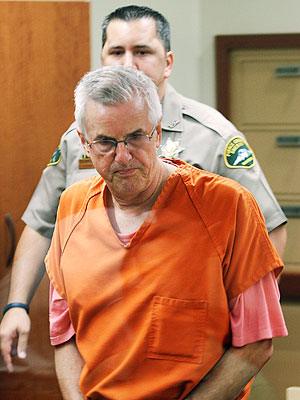TOKYO (Reuters) - Asian shares touched fresh 16-month highs on Friday as investors awaited U.S. nonfarm payrolls data due later in the day, with sentiment underpinned by signs that China's economy is stabilizing.
European shares will likely gain modestly, with financial spreadbetters predicting London's FTSE 100 <.ftse>, Paris's CAC-40 <.fchi> and Frankfurt's DAX <.gdaxi> to open as much as 0.4 percent higher. A 0.1 percent rise in U.S. stock futures hinted at a steady Wall Street open. <.l><.eu><.n/>
MSCI's broadest index of Asia-Pacific shares outside Japan <.miapj0000pus> rose 0.5 percent, and was set for its third-straight weekly gain with a 1.3 percent advance. The index has gained about 17 percent year-to-date, compared to a loss of nearly 18 percent last year.
Hong Kong shares <.hsi> reached a 16-month peak and have climbed some 21 percent so far this year despite facing bouts of pressure from sputtering mainland Chinese markets. Shanghai shares <.ssec> jumped 1.2 percent.
"People were gloomier at this time last year, but now, judging from the flows, they seem to be very optimistic and positioning for policy changes next year in China," said Larry Jiang, chief investment strategist at Guotai Junan International Securities.
Australian shares <.axjo> rose 0.9 percent to a six-week closing high, with top miners supported by rebounding iron ore prices.
Investors will focus on a slew of Chinese data due over the weekend including industrial output, after recent manufacturing surveys pointed to a recovery from lows earlier this year.
"One of the reasons for the gains is better news we've seen from China and expectations the economy there has stabilized and growth has improved modestly," said Michael McCarthy, chief market strategist at CMC Markets.
Despite some positive signs in the world's second-largest economy, the Asian Development Bank slightly cut its 2012 and 2013 growth estimates for developing Asia on Friday as frail global demand continues to drag on the region.
Buoyed by strong domestic consumption and government spending, developing Asian economies have shown relatively more resilience compared with developed and more export-reliant economies such as Japan and south Korea.
South and Southeast Asian bourses have outperformed, with a 32 percent year-to-date surge in the Philippines <.psi>, a 30 percent gain in Thailand <.seti>, Indian shares <.bsesn> rising 26 percent and Indonesia <.jkse> up 12 percent to date.
Japan's Nikkei stock average <.n225> was barely changed, hovering near seven-month highs hit on Thursday. <.t/>
The dollar traded at 82.47 yen, sticking close to a 7-1/2-month high of 82.84 hit on November 22.
U.S. HOPES
As superstorm Sandy disrupted U.S. economic activity, nonfarm payrolls in November are expected to have increased only 93,000, compared to October's 171,000 job gain, a Reuters survey of economists showed. The unemployment rate is seen holding steady at 7.9 percent.
"A soft number should reinforce the case for the Fed doves ahead of next week's FOMC meeting where QE is likely to be increased in order to at least offset the expiration of Operation Twist. Hence a soft report should hurt USD and vice versa," Sean Callow, senior currency strategist at Westpac bank in Sydney, said in a note.
At its December 11-12 meeting, the Federal Reserve is expected to announce a new round of Treasury bond purchases to reinforce quantitative easing, replacing the expiring programme called Operation Twist, under which it bought $45 billion of longer-dated bonds a month while selling its shorter-date holdings.
With little to show after a month of posturing, the White House and Republicans in Congress dropped hints on Thursday that they had resumed low-level private talks on breaking the stalemate over the "fiscal cliff.
Markets have been keeping up hope that Washington would eventually avert some $600 billion of tax hikes and spending cuts scheduled to start in January. Economists have warned that if Congress failed to reach an agreement, the U.S. economy could slip back into recession, further weighing on the fragile global economy.
EURO ON DEFENSIVE
The euro steadied at around $1.2968. The euro slid nearly 1 percent to a one-week low of $1.2950 on Thursday in its biggest one-day loss in a month on prospects for interest rate cuts next year.
European Central Bank President Mario Draghi said on Thursday policymakers had held a wide discussion on interest rates, including negative deposit rates, which means effectively charging depositors rather than paying them interest, with an aim of forcing banks to put their money to work elsewhere.
The ECB also projected gross domestic product next year could range from a contraction of 0.9 percent to growth of 0.3 percent, suggesting contraction is far more likely than not.
"It is unusual that a negative growth projection for the next year is offered before the end of the current year, but with such a view, markets are naturally pricing in a interest rate cut," said Daisuke Karakama, market economist for Mizuho Corporate Bank in Tokyo.
He expected the euro to remain vulnerable with the risk of falling back to $1.2 at some point, but the single currency appeared to be supported currently by year-end repatriation flows.
U.S. crude futures inched up 0.4 percent to $86.58 a barrel and Brent rose 0.2 percent to $107.29.
A firm tone in broad assets soothed sentiment for Asian credit markets, narrowing the spreads on the iTraxx Asia ex-Japan investment-grade index by 2 basis points.
(Additional reporting by Clement Tan and Vikram Subhedar in Hong Kong and Maggie Lu Yueyang; Editing by Kim Coghill)












